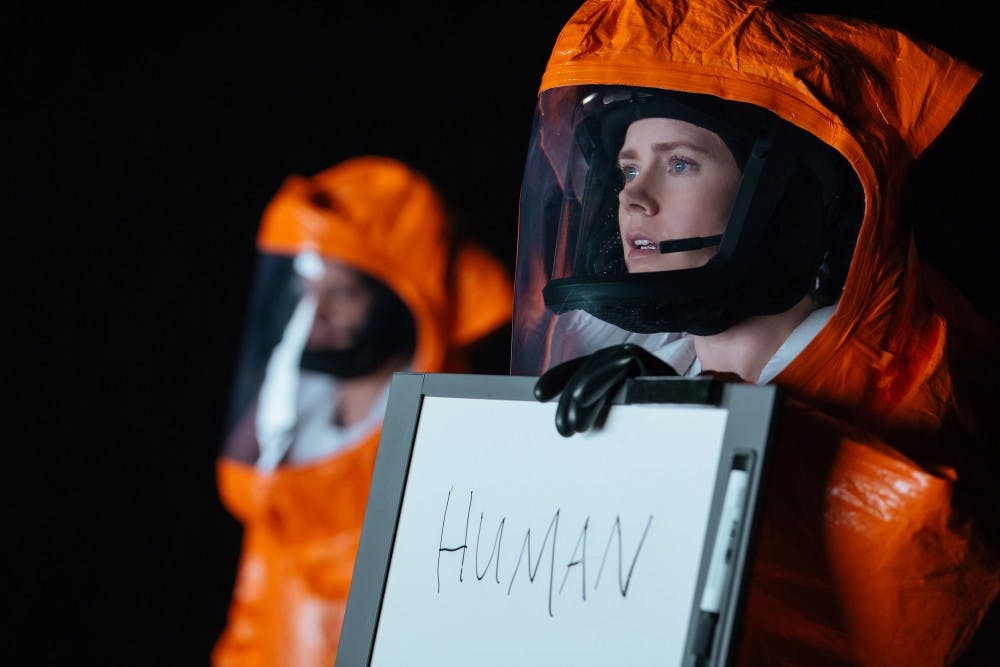If the blunt and shamelessly generalizing headline didn’t give it away, I have a bone to pick with (many) sci-fi movies or, more to the point, their love of nonsensical or stupid endings.
Now, for context, I am not a snobby film buff who looks down on sci-fi as a lesser genre. I love sci-fi and gravitate towards it in nearly every medium, whether it be movies, shows, games or books. Sci-fi is my default choice, my comfort food and accounts for some of my all-time favorite works. And this is precisely why after noticing a consistent problem, I felt compelled to rant about it in this article. So, if you care to understand the reasoning behind my rant, then take a walk with me.
Late last year I saw “Arrival,” the sci-fi movie starring Amy Adams and Jeremy Renner about mysterious aliens who land on Earth and the struggles that humans face as they try to communicate with them. I had heard nothing but positive reception for the movie and since my father and I both love sci-fi, I decided to go with him to see it not really knowing anything about it other than it had to do with aliens in some capacity. As the movie went on, I was constantly thinking, “Wow, this is what sci-fi should be!” and “This is one of the most well-written and clever sci-fi movies I’ve ever seen.” I fully expected to leave the theater singing the movie’s praises to all my friends.
Then the last 20 minutes happened.
In case you missed it earlier, I will be going into spoilers for “Arrival” here so if you haven’t seen it you might want to read the rest of this later. What had been such an interesting and grounded story about trying to communicate with and understand different intelligent lifeforms ended in a convoluted mess of seeing into the future and bizarre, heavy-handed messages. We both loved the film up until the very end, but when the credits rolled we both looked at each other with a confused and annoyed look that we both know too well.
The reason this look is ingrained in us is we have been in this position many times before, most notably in 2014 after seeing “Interstellar.” This was another example of a sci-fi movie that kept me intrigued the entire time but completely lost me in the end. The more I thought about it, the more annoyed I got about how I had gone from marveling over the film’s portrayal of time dilation in space and being amazed by the incredible visual spectacle to watching Matthew McConaughey fall through a black hole and knock on his daughter’s bookcase.
The big problem with these movies, in my opinion, is that it feels as if the writers think that they have to end on some giant, climactic and unexpected twist or their movie won’t be worthwhile, even if that twist completely goes against what has otherwise been a grounded story. The endings for both “Arrival” and “Interstellar” feel like they are twists just for the sake of having a twist, or just to end in a climactic way, when I would have greatly appreciated a more logical end, even if it meant sacrificing some of the tension and suspense.
The examples don’t end there. 2012’s “The Dark Knight Rises” had a solid ending with the strong emotional impact of Batman’s death until they decided to show him alive at the last moment with no explanation. Nolan’s trilogy could have ended with Batman being the hero who sacrifices himself for Gotham, the city that he risked his life for even though they never respected him, and it would have been a fitting end. But instead, we get the cheap and unearned ending where he survives because … Why? Because we weren’t expecting it? That doesn’t seem like a good reason to me.
This is a problem prevalent in many sci-fi movies, including many that have incredible stories until the very end. Now of course I realize that many disagree with me, and that the likelihood of seeing much of a change is low — especially with the popularity of the sci-fi genre as it currently stands — but I am tired of having to convince myself over and over that it isn’t about the destination, it’s about the journey.
In my own perfect world, sci-fi filmmakers would strive to make logical endings rather than whatever would be the most shocking, but until that future comes, I will continue to enjoy sci-fi and just deal with their pretentious and nonsensical endings. Maybe from now on I’ll just start leaving the theater once the main character starts time-traveling or having some weird out-of-body experience and then I’ll be content.

